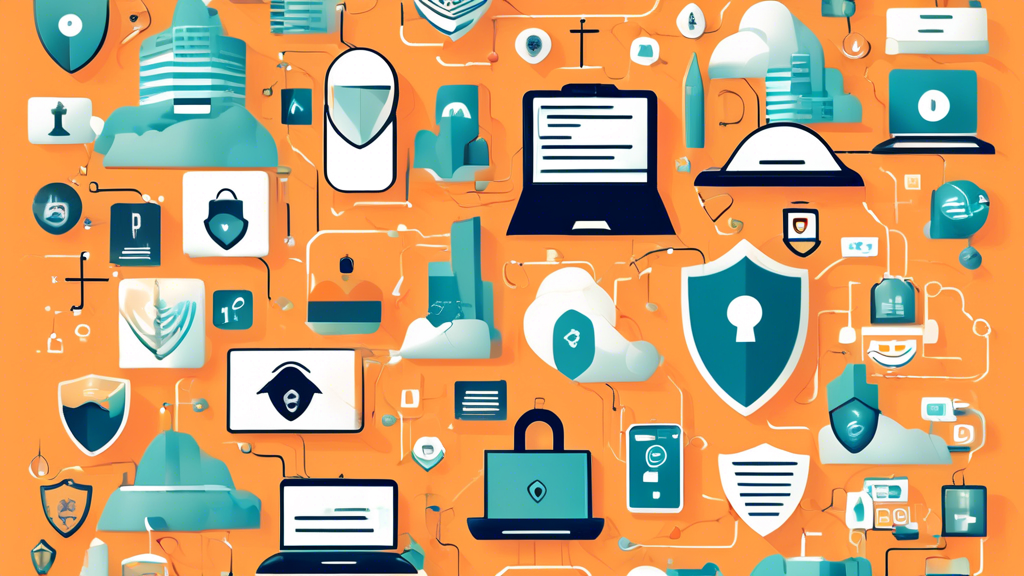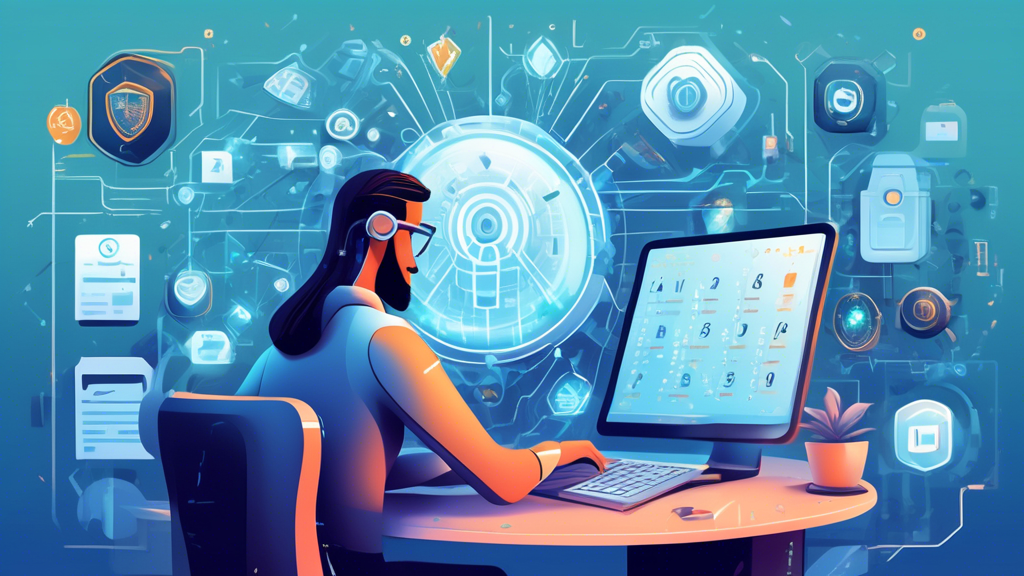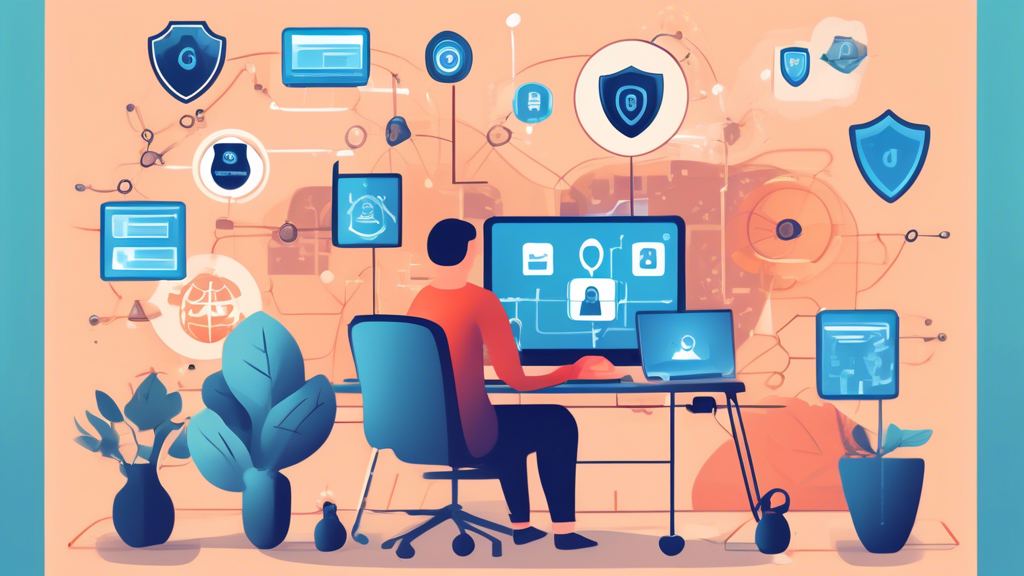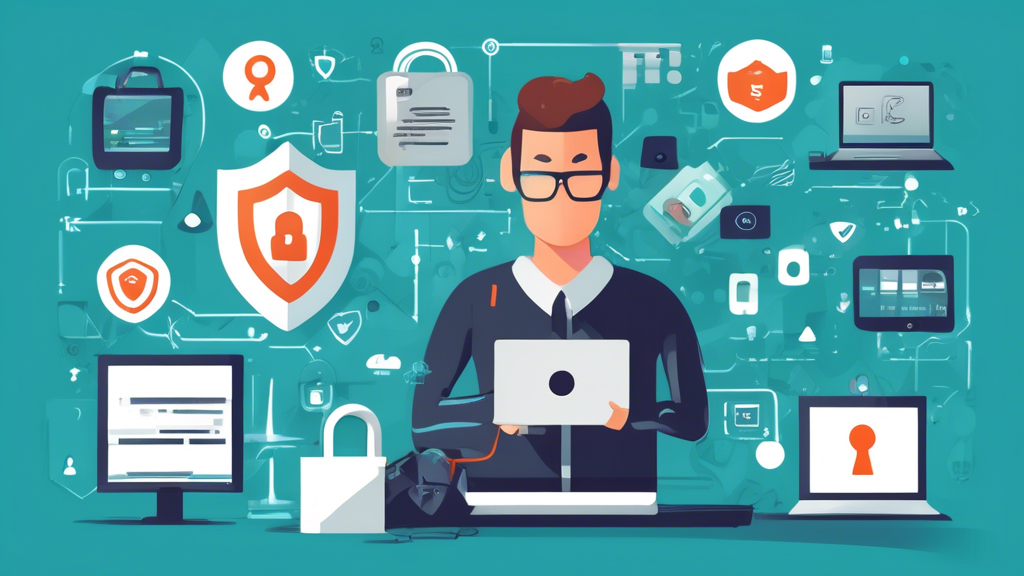Exploring the Best Private Browsers Online for Secure Surfing
In an age where digital privacy is a growing concern, finding the right tools to surf the internet securely has never been more crucial. Private browsers online serve as a robust line of defense, ensuring that your personal information remains safe from prying eyes. This article delves into why securing your online activities are paramount and showcases the best private browsers online designed to protect your digital footprint.
Why You Need Private Browsers Online for Secure Surfing
The modern internet user faces numerous online privacy concerns, from data tracking to cyber-attacks. Understanding these risks is the first step towards safeguarding your online presence. Here’s why you need private browsers to ensure a secure surfing experience:
Understanding Online Privacy Concerns
Every click you make on the internet potentially exposes sensitive information about you. Without proper protection, personal data like your browsing history, passwords, and even financial information can fall into the wrong hands. Private browsers online are built to minimize these risks, offering you a safer browsing environment.
Common Threats to Online Security
Online threats are ubiquitous, ranging from cookies that track your every move to sophisticated cyber-attacks that can compromise your confidential data. Data breaches and targeted tracking are just a few of the perils that highlight the need for enhanced online security measures.
The Role of Private Browsers
Private browsers online go beyond the capabilities of standard browsers when it comes to ensuring your security. They work by blocking trackers, providing encrypted connections, and sometimes even masking your IP address, making it substantially more difficult for third parties to monitor your online activities. In the following sections, we explore the top private browsers that can offer you peace of mind while surfing the web.
Why You Need Private Browsers Online for Secure Surfing
Understanding Online Privacy Concerns
In the digital age, online privacy has become a paramount concern for individuals worldwide. As we navigate through websites, social media platforms, and various online services, we continuously leave behind a trail of personal information. This data can include anything from browsing history and search queries to personal identification and financial details. Understanding the importance of protecting this sensitive information is crucial for ensuring a safe and secure online experience.
Common Threats to Online Security
Online security threats are not only prevalent but continually evolving. Here are some of the most common threats that users face:
- Tracking: Websites and advertisers frequently use cookies and tracking pixels to monitor user behavior and gather data for targeted advertising.
- Data Breaches: Cybercriminals often target companies and services to steal vast amounts of user data, which can then be sold or used for fraudulent activities.
- Cyber-attacks: These include a range of malicious activities such as phishing attacks, malware, and ransomware, aimed at stealing personal information or causing disruptive damage.
These threats highlight the need for robust measures to protect online activities and maintain privacy.
The Role of Private Browsers
Private browsers online are designed to enhance user security and privacy by providing various layers of protection. Here’s how private browsers contribute to more secure surfing:
- Blocking Trackers: One of the primary features of private browsers is their ability to block trackers and prevent third-party entities from monitoring user activities. This helps in maintaining a higher level of anonymity.
- Encrypting Data: Many private browsers integrate encryption technologies to ensure that data transmitted between the user’s device and websites is secure from interception and unauthorized access.
- Auto-delete Browsing History: Private browsers often come with settings to automatically delete browsing history, cookies, and cache after each session, ensuring no residual data is left behind.
- Enhanced Security Features: Additional features may include built-in VPNs, secure search engines, and anti-phishing tools, all designed to protect users from various online threats.
By using private browsers, individuals can significantly reduce their risk of falling victim to data leaks, cyber-attacks, and intrusive tracking methods. Consequently, private browsers online are an essential tool for anyone looking to safeguard their digital footprint.
Top Private Browsers Online: Features and Benefits
As online privacy becomes increasingly important, choosing the right private browser can make a significant difference in how your personal data is safeguarded. Below, we explore some of the top private browsers online, weighing their unique features and benefits to help you make an informed choice.
Tor Browser
The Tor Browser stands out as one of the most advanced options for those needing comprehensive online privacy. Built on the concept of onion routing, it directs traffic through a series of volunteer-operated servers, making it extremely difficult for any entity to track your online activities. The multilayered encryption provided by Tor ensures that your browsing data is anonymized, adding an extra layer of security.
Beyond its robust privacy features, Tor also offers a straightforward user experience. The browser is designed to provide anonymity out of the box, with many privacy settings preconfigured to maximize user security. This makes it a preferred choice for activists, journalists, and any users for whom privacy is paramount. However, it’s worth noting that due to the nature of its extensive privacy protections, Tor may not be as fast as some other browsers, making it less ideal for day-to-day casual browsing.
Brave Browser
Brave Browser is celebrated for its built-in ad and tracker blocking capabilities, providing a seamless and efficient browsing experience without compromising on privacy. By blocking unwanted ads and trackers by default, Brave ensures that web pages load quicker and more securely.
Brave’s unique integration with cryptocurrency also sets it apart from other browsers. Users can opt to earn Basic Attention Tokens (BAT) by choosing to view privacy-respecting ads. This innovative approach not only protects user privacy but also offers a potential revenue stream for users. Furthermore, Brave includes a feature called Private Tabs with Tor, integrating some of Tor Browser’s privacy benefits without needing to switch browsers entirely.
DuckDuckGo Privacy Browser
Designed with search anonymity at its core, the DuckDuckGo Privacy Browser offers a mobile-friendly way to maintain privacy while browsing and searching the web. It automatically blocks hidden third-party trackers and forces sites to use encrypted connections when available, ensuring a more secure browsing session.
The notable aspect of DuckDuckGo’s approach is its simplicity and ease of use, making it an ideal choice for users who may not be tech-savvy but still want to protect their privacy. The browser is specifically tailored for mobile devices, making it a standout option for those who do most of their internet browsing on smartphones or tablets.
Mozilla Firefox
Mozilla Firefox is a versatile and highly customizable browser that offers a strong focus on user privacy. From its Enhanced Tracking Protection to its ability to block fingerprinting techniques, Firefox provides robust privacy features without sacrificing performance.
The community-driven nature of Mozilla ensures continuous improvements and a strong support network. Firefox’s extensive library of privacy-focused extensions allows users to customize their browsing experience to meet their specific privacy needs. This makes it an excellent choice for users who want a balance between privacy, performance, and customization.
Epic Privacy Browser
The Epic Privacy Browser promises an uncompromised commitment to user privacy through its always-on private browsing mode. Unlike most browsers that require users to enable private mode, Epic operates in this mode by default, ensuring that no browsing history, cookies, or cached data are stored.
Adding to its privacy credentials, Epic also offers a built-in VPN, providing an extra layer of security and anonymity. Data sent through the Epic Browser is encrypted, offering an added layer of protection against snooping and cyber-attacks. This makes it a compelling option for users who prioritize out-of-the-box privacy without needing to tweak settings or add extensions.
In summary, each of these private browsers online excels in different areas, catering to varying privacy and security needs. Whether you prioritize comprehensive anonymity, ease of use, customization, or built-in features like a VPN, there is a private browser that will meet your specific requirements. As online threats continue to evolve, leveraging these advanced browsers can help maintain a higher level of security and privacy while surfing the web.
How to Choose the Right Private Browser for Your Needs
Assessing Your Privacy Requirements
When evaluating which private browsers online best fit your needs, the first step is to assess your privacy requirements. The level of anonymity and security you need largely depends on your online activities and behavior. Are you a casual user mainly concerned with avoiding targeted ads, or are you looking for robust protection against sophisticated cyber threats? Understanding your specific needs will help you narrow down the list of potential browsers. For example, if your primary concern is avoiding tracking, you might favor a browser like Brave, which excels in ad and tracker blocking.
If you manage sensitive business transactions, medical data, or other high-stakes information, you might lean towards browsers that offer stronger encryption and traffic routing, such as the Tor Browser. Additionally, considering the type of devices you use is vital. Some browsers perform better on desktops, while others are optimized for mobile usage. By clearly defining your privacy requirements, you create a solid foundation for making an informed decision.
Comparing Browsers’ Performance and Compatibility
Once you’ve established your privacy needs, the next step is to compare the performance and compatibility of various private browsers online. Speed is a crucial factor; no one wants to sacrifice browsing performance for security. Conduct tests to see how each browser performs under different circumstances, such as streaming, downloading files, or general web surfing.
Moreover, ensure that the browser you choose is compatible with your operating system, whether that’s Windows, macOS, Linux, Android, or iOS. Some browsers offer better support and receive more frequent updates for certain operating systems, which can impact both security and user experience. For instance, Mozilla Firefox is known for its broad compatibility and regular updates, making it a flexible choice for many users. On the other hand, browsers like DuckDuckGo Privacy Browser might excel in mobile environments but offer less functionality on desktops.
Evaluating user reviews and forums can also provide insight into real-world performance and compatibility issues. Look for common themes in user feedback, such as slow performance on certain websites or frequent crashes on specific devices. These insights can save you time and effort in your testing phase.
Practical Tips for Maximizing Security
Even the best private browsers online can benefit from additional measures to further secure your browsing experience. Here are some practical tips to maximize your online security:
- Regularly Update Your Browser: Ensure that your browser is always up-to-date with the latest security patches. Updates often address known vulnerabilities that could be exploited by cyber attackers.
- Use Robust Passwords: Strong, unique passwords for every online account are essential. Consider using a password manager to keep track of your passwords securely.
- Pair with Additional Privacy Tools: Enhance your browser’s capabilities by using additional privacy tools like VPNs (Virtual Private Networks). A VPN can mask your IP address, providing an extra layer of anonymity and security.
- Enable Privacy Settings: Delve into your browser’s settings and customize them for maximum privacy. Options might include blocking third-party cookies, disabling tracking, and using private search engines.
- Stay Informed: Keep up with the latest privacy and security trends to protect yourself better. Cyber threats are continually evolving, making it crucial to stay updated with new security measures and practices.
By combining the right private browsers online with these practical security tips, you create a comprehensive strategy to safeguard your online activities. The seamless blend of the right tools and proactive measures ensures your browsing experience remains safe and private. Ready to take charge of your online privacy? Start assessing, comparing, and enhancing your setup today for a more secure digital journey.
Conclusion
In today’s digital age, the necessity for private browsers online cannot be overstated. As we’ve explored, these specialized browsers play a crucial role in safeguarding your personal information and enhancing your online security. With the multitude of online threats ranging from invasive trackers to cyber-attacks, having a robust private browser at your disposal is more vital than ever.
From the advanced privacy features of Tor Browser to the rapid performance and ad-blocking capabilities of Brave Browser, each browser we’ve discussed offers unique advantages tailored to different privacy needs. Whether you prioritize the ease of mobile use with DuckDuckGo Privacy Browser, the extensive customizability of Mozilla Firefox, or the comprehensive privacy tools offered by Epic Privacy Browser, there’s a solution suited for everyone.
Choosing the right private browser depends on a clear understanding of your privacy requirements, the performance and compatibility of the browsers, and practical application of security measures. By regularly updating your browser, using strong passwords, and integrating additional tools like VPNs, you can significantly enhance your online security and ensure a safer browsing experience.
As you navigate the complex web of online privacy, let this guide be your starting point in exploring the best private browsers online. By making informed choices, you can confidently surf the internet with the knowledge that your privacy and security are well-protected.









